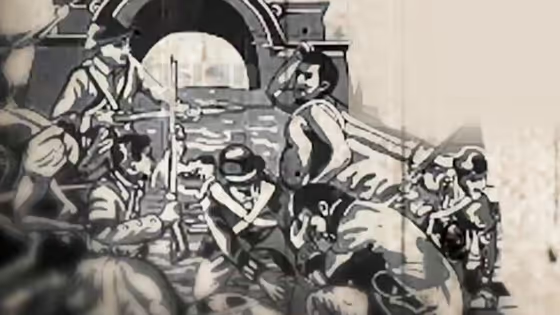
India@75: Attingal revolt, the first organized mutiny against British authority in India
Attingal revolt refers to the massacre of 140 East India Company soldiers by native Indians and the following siege of Fort Anjengo.
The roaring Arabian Sea. A fishing village called Anchuthengu on India’s southwestern coast. A sprawling stone fort. Period, the second decade of the 18th century.

Anchuthengu fort on the outskirts of Thiruvananthapuram was the English East India Company’s second-largest commercial fortress after Bombay. It was when East India Company was driven only by commerce before it established its political hegemony in India.
The English were given permission and the monopoly to buy pepper by the Queen of Attingal. She wanted to clip the wings of the Dutch’s increasing power. But the English based themselves at the fort and unleashed a reign of terror, corruption, and assault on the local people. Hindus and Muslims of the region equally met with insults from the English.
Unable to bear it, the people of Anchutheng and Attingal were waiting for a chance to retaliate. Some of the Ettuveettil Pillais, the feudal lords, organized the angry people.
April 14, 1721. The East India Company’s local head William Gyfford accompanied by 140 soldiers and slaves, were sailing on a boat through the Vamanapuram river. They were going to meet the Queen to present her with gifts and tributes. But once the Company party was inside the palace, they were subjected to a surprise and massive assault. The hours-long battle left not a single English man alive.
Vamanapuram river turned red with the dead bodies. Gyfford, who had most rebuked the people, was tied to a log with his tongue scourged out and hurled into the river. Soon the Anchutheng fort too was conquered by the people.
This had happened 36 years before the Plassey War that established English power in India. And 136 years before India’s First war of independence. The historical moment when ordinary people of India joined hands above all differences and brought the far better-equipped invader to the knees.
Also watch:
India@75: Madam Cama, the freedom fighter who hoisted Indian flag for 1st time on foreign soil
India@75: Vaikom Satyagraha, India's first movement against caste bias
India@75: Bankim Chandra Chattopadhyay, the man whose works awoke a nation
India@75: Meera Behn, Mahatma's confidante who took India's freedom struggle abroad